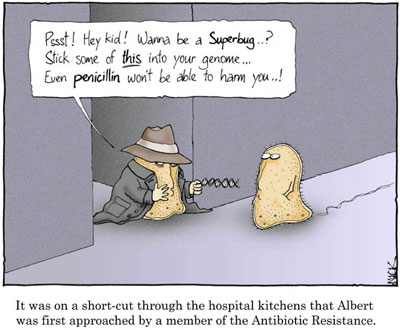To start off, I have to say that I had a lot of fun with blog posts this year. A lot of fun! Although they seemed like a burden in the beginning of the year (Every weekend?! 200+ words?! Blasphemy!), they helped me reflect on what I was reading and search for deeper connections to the text. I would anticipate the week's blog post, so that I could rant on, or hate on, a certain reading. The blog was my canvas and my brain would just explode onto it, sometimes in incoherent jumbles of words, but it was a therapy of sorts, allowing me to express my strong feelings about something that moved me entirely. In short, I think I should end my blog posts this year on a long note; I am a little reluctant to let it go after an amazing year, so I might as well delay this sad breakup in any way I can.
To be or not to be -- that is the question. Hamlet is trapped in a well of internal turmoil, and his inability to carry out any action frustrates him to no ends. He plots his way to Claudius's murder, but hesitantly. This theme of frustration and inaction is carried throughout the play as he continues to torment Claudius and Gertrude as well as himself and Ophelia. He openly curses his mother, as noted when he says, "I will speak daggers to her, but use none" (3.3.429). Hamlet insults her in the famous bedroom scene and decides to leave Gertrude to her own torment, but he does not seem to openly denounce Claudius, instead choosing to plot slowly and make Claudius face his guilt. When Hamlet's wits escape him, he acts irrationally, but when his rational mind is in place, paradoxically when he is "mad", he holds back.
The question is, is Hamlet's inaction a virtue or vice? (This is going a little farther than where we got in class) Hamlet certainly did take long enough to kill Claudius, but even so, he killed Claudius in the heat of the moment, after his mother and Laertes lay dying, not in an epic showdown. In a way, it seems as if Hamlet never wanted to go that far, because his rational mind restrained him. His turmoil stems from his wish to kill Claudius and take the throne as well as his his to stay rational, an obvious fight between his id and superego (also referring to Freud). Hamlet's inaction not only prolonged everyone's death, but also caused him grief. However, revenge is best served cold, and Hamlet may have been waiting for the perfect moment to denounce Claudius and kill him in a manner worthy of dramatic hero movies; on the other hand, Hamlet's inaction allowed Demark to slip even further into ruin. It must also be remembered that Hamlet was scholarly and cautious. So, was his indecision good or bad?
Ending on a more random note, I find Hamlet adaptations everywhere. As a child, I watched Lion King. Innocently. My mind was completely blown when I found out that it's an adaptation of Hamlet. Suddenly I realize that it is everywhere. Hamlet has even crossed racial boundaries and the Chinese, Indian, European, etc. have all made some kind of reference to it. Just this weekend, on a lazy day, I decide to watch The Banquet, which is strongly based off of Hamlet, but I was completely shocked by the director's liberties, especially after reading the actual play. In this adaptation, the equivalent of Hamlet was infatuated with Gertrude, who is not his real "mother", but rather the Empress Mother after she betrays him and marries his father. There's no ghost and Hamlet is a complete pansy, even more delicate than the Hamlet in Shakespeare's play. Gertrude is actually the most crafty of them all, plotting to kill Claudius and take the throne as a female Emperor; Polonius and Laertes are equally cunning, planning to overthrow Claudius and foiling Gertrude's plans. Laertes even ominously warns Hamlet to lay low, because his action will cause the death of everyone else. The lesson I gleaned from all of this is that Hamlet's plight is ubiquitous and felt by all. Like "Shakespeare in the bush", we can all interpret Hamlet differently. We can all (as Ms. Valentino warned us) connect with him in some way, and his multifaceted character appeals to us because we are Hamlet.
Well, blog, I think it's time to say goodbye. It's been a fun year with you and I'll miss my weekly posts, but I will continue to read on!
Signing off for the last time,
Annie








